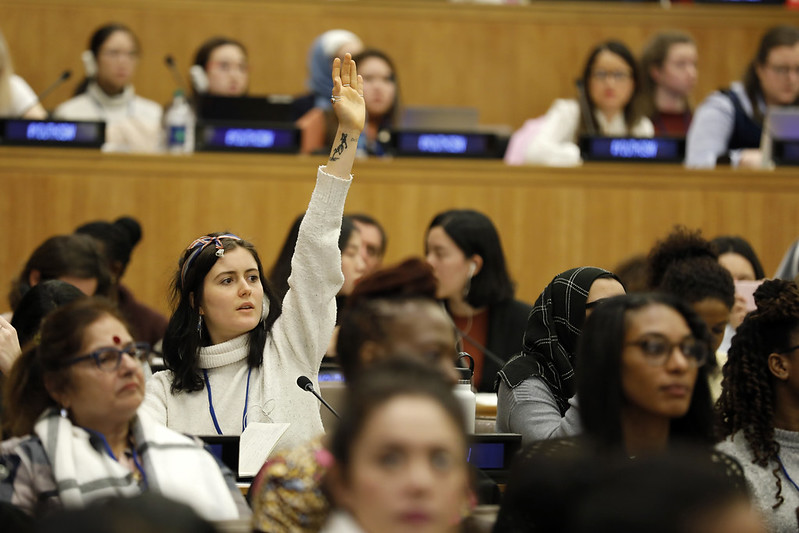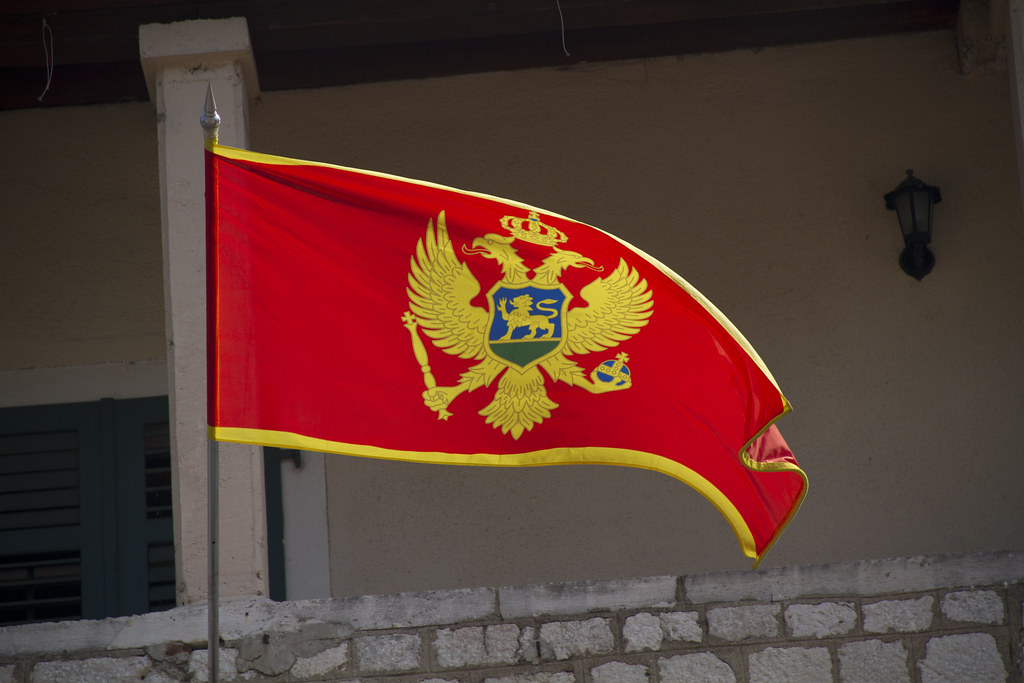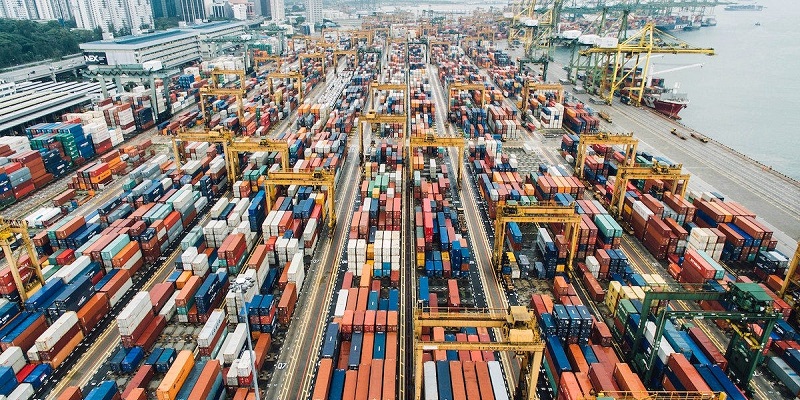Poland’s presidential race has exposed deep political fractures, with a surging far right threatening the liberal lead. As fear-driven narratives gain traction, the election’s outcome could reshape not only Poland’s future, but also broader European democratic norms.
Romania has made it (democratically speaking), so maybe Poland will pull through as well? This is still to be seen in the second round of Poland’s presidential elections planned for 1 June. What is, however, clear is that the populist right is getting meaningfully stronger and conservative rhetoric universally more appealing. While these are general trends across Europe, the first round of the presidential elections in Poland on 18 May, with the turnout of over 67 percent, still brings a surprise for those who expected a pro-European candidate to win.
The results show that Rafał Trzaskowski, the liberal mayor of Warsaw and the candidate of Civic Coalition, is currently leading, but not by much. His position, with 31.36 percent of the vote, is seriously threatened by Karol Nawrocki, a right-wing candidate who has secured 29.54 percent, overtaking two other nominees of the ultra-right. A huge divide between the left and right electorates, as well as splits among right-wing supporters, are seen as a challenge in predicting whose support the two competing candidates will gain in the second round.
Nawrocki, a former director of the Second World War Museum in Gdansk and the head of the Polish Institute of National Remembrance—both institutions internationally famous for controversial decisions made under his leadership—considers himself an independent candidate, although he is supported by the right-wing populist and national-conservative Law and Justice (PiS) party.
The allegations that appeared in the media during the campaign are, however, more alarming. They include, for example, information about his close acquaintance with a former member of a gang of pimps convicted for kidnapping, and with a sentenced football hooligan widely known within international neo-Nazi groups. Disturbing news, which also includes several “apartment” scandals, has not deterred his supporters who seem to be convinced by Nawrocki’s anti-EU stance, particularly threats he perceives as stemming from EU climate and migration policies, and by his strong position on strengthening Poland’s sovereignty. They may also appreciate his admiration of Donald Trump. The liberals, however, see Nawrocki as a more serious threat compared to the current PiS-nominated president Andrzej Duda, while some commentators point out that his candidature is “one of the greatest political mysteries of recent years.”
There are other mysteries and surprises of the presidential elections. One of them is an extremely tight competition between Trzaskowski and Nawrocki, the other—an unexpectedly weak result of the left candidates, Adrian Zandberg and Magdalena Biejat, who together received about nine percent.
That right-wing views have become more popular is not surprising. However, the fact that Trzaskowski has not one, but three ultra right-wing candidates hot on his heels is quite astonishing. Nawrocki, who received 29.54 percent, is followed by the candidates of, or stemming from, the Confederation party: Sławomir Mentzen with 14.81 percent and Grzegorz Braun with 6.34 percent of the vote.
Voters for whom Nawrocki’s Euroscepticism appears too mild supported either Mentzen—a multimillionaire with his own brewery, as well as a dislike of non-Polish surnames, and for whose party the EU is a totalitarian state—or Braun, who openly shares antisemitic, anti-Ukrainian, and anti-LGBT views, and has made international headlines for putting out Hanukkah candles with a fire extinguisher in the Polish parliament in 2023.
While Mentzen’s campaign slogan of making “a strong and rich Poland” with low taxes could seem appealing to many, his call for liberalising gun laws and tightening the already conservative abortion law are more problematic, as were his 2019 postulates (that he has now abandoned) known as “the Mentzen five”: “We don’t want Jews, homosexuals, abortion, taxes and the EU.” He has replaced the old “Mentzen five” with a new one that includes paid tertiary education and limited funds for medical services.
The rhetoric used by Mentzen and his party should not be dismissed as simply an expression of protest or an opposition to the establishment. Calling rape a form of “unpleasantness,” as Mentzen did during a debate on women’s rights in this presidential campaign, or expressing a view that a woman is simply a man’s property, as the Confederation representatives were recorded saying at one of their meetings before the parliamentary elections in 2023, cannot be treated as anything else but an aberration unacceptable in a democratic society.
Braun’s antisemitic statements and provocations, and other public insults, cannot be treated as less than incitement to hatred based on ethnic and religious differences, which is punishable by law in Poland. And yet, these two candidates received together 21 percent of the vote.
The question is, why? While support for right-wing parties has been observed generally across Europe and, indeed, the world, it does often have its local flavours.
In the Polish elections, climate issues have been pushed to the background and have not caused significant divisions. The topic of women’s rights—loudly debated in 2024 in the context of abortion laws—does not particularly stand out in the current campaign.
Concerns about taxes and the cost of living are significant across all right-wing candidates who have made promises of lowering taxes. These must be “simple, and family-friendly” (Nawrocki), they cannot support “profligate spending on welfare” (Mentzen, a tax adviser himself), and must be generally rejected, together with minority groups and religions to restore “a state of normality” (Braun).
The right-wing candidates have also used, more effectively than others, fear narratives focused on what Poles seem to be afraid of most: the escalation of the war in Ukraine and migrants. To be sure, the fear of migration is a common element of election campaigns across Europe.
Although Poland has not really experienced what Western Europe called a “migration crisis,” the fear of “the Other” has been effectively weaponised by PiS, presenting migrants as a serious danger to national security in military, economic, and identity-related terms—a strategy that resonates within the context of Polish history, marked by occupations from the West and East, decades under communist dictatorship, and years of trying to catch up with a more “European” Europe.
Poland experienced significant migration flows after Russia’s invasion of Ukraine in 2022, and while Ukrainian migrants have not been perceived as a security threat, especially when compared to Middle Eastern or North African migrants taking the Belarusian route, they have started to arouse resentment in the face of increasing cost of living pressures and limited access to social services. Additionally, the long border (over 600km) with Belarus and Russia makes the country’s security a great concern for Poles.
Yet, while migration is a significant element of the presidential campaign, it does not really cause deep divisions. The right-wing parties are outspoken about their dissatisfaction with the EU migration pact and the urgent need to close the borders, but the current centrist government has not been very lenient towards migrants either, particularly those at Poland’s eastern border, for whom asylum processes have been suspended due to the perceived threat of the Kremlin weaponising migrants to upend security in the region. Trzaskowski promises further restrictions such as limiting social assistance for Ukrainians—an idea supported by over 88 percent of Poles (IBRiS survey).
Collective egoism is more understandable in times of crisis. But in the case of Poland, it is a combination of real threats and abstract fears that mobilise people to look inward and nurture nationalistic sentiments. Some observations on the election’s first round are quite pessimistic, pointing to xenophobia and familial immoralism, or even risking an assumption that perhaps being “European” is no longer seen as a virtue.
Certainly, the results show deep disappointment, particularly among young people, with the established order and a desperation to find new options. Their anger and frustration is well expressed in the ultra-right language and approaches. With a general sense of a global crisis, voters look for candidates who are able to clearly identify an enemy—whether the EU, minority groups or the state itself with its taxes and complex systems.
This trend seems to spread through Europe which is, as some fear, facing existential challenges. Perhaps it is too early to reach such a conclusion, given the turn of the events in Romania, but the stakes of the Polish presidential elections are high, and not only for Poland.
Katarzyna Kwapisz Williams is Deputy Director at the Centre for European Studies, Australian National University. Kasia.williams@anu.edu.au
This article is published under a Creative Commons License and may be republished with attribution.




